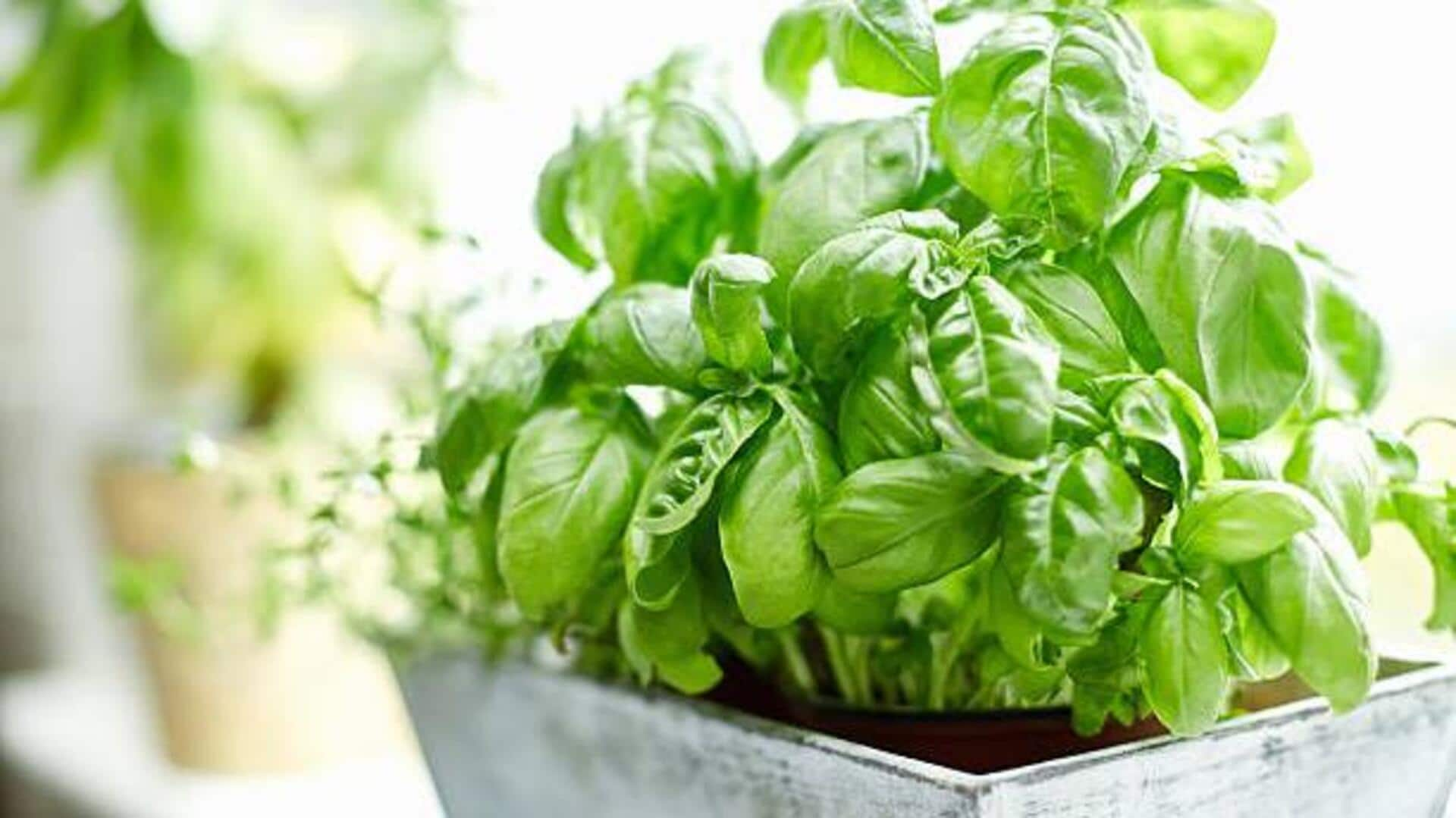
5 watering hacks for basil plant
What's the story
While growing a fresh basil plant at home can be rewarding, you need to give it proper care to grow. One of the most important things to keep your basil healthy is watering. Knowing the right techniques can make all the difference in keeping your basil lush and aromatic. Here are five practical watering hacks to help you nurture your basil plant.
Tip 1
Use room temperature water
Using room temperature water is critical for your basil plant's health. Cold water can shock the roots, while hot water may damage them. When you use water that matches the ambient temperature, you make sure the roots absorb moisture efficiently without stress. This simple adjustment keeps the growth consistent and prevents any shock to the soil condition that could harm your plant.
Tip 2
Water in the morning
Watering your basil plant in the morning also allows it to absorb moisture throughout the day when it's most active. This timing also ensures that excess water evaporates before nightfall, reducing the risk of fungal diseases caused by prolonged dampness around the roots. Morning watering aligns with natural processes and supports optimal growth conditions for your basil.
Tip 3
Check soil moisture regularly
Regularly checking soil moisture levels is key to avoid overwatering/underwatering your basil plant. Stick a finger about an inch into the soil, if it feels dry, it's time to water. Consistent monitoring helps maintain ideal moisture levels, preventing root rot from excessive watering or wilting from lack of hydration.
Tip 4
Use well-draining pots
Choosing pots with good drainage is absolutely vital for healthy basil plants. Well-draining pots keep water from pooling at the bottom, which can lead to root rot and other problems. Make sure there are enough holes at the base of your pot so that excess water can escape easily after every watering session.
Tip 5
Mulch to retain moisture
Further, applying a layer of mulch around your basil plant retains soil moisture by reducing evaporation rates in hot weather conditions. Organic mulches such as shredded leaves or straw work well since they decompose over time, enriching soil quality while keeping it moist for longer between watering sessions.